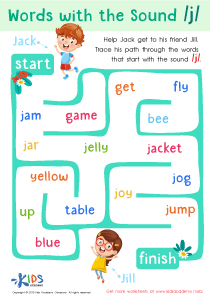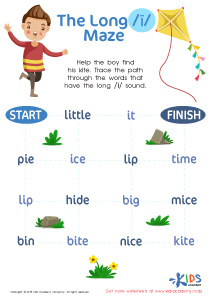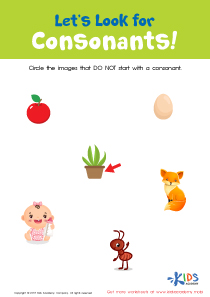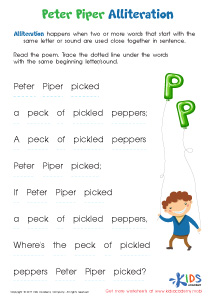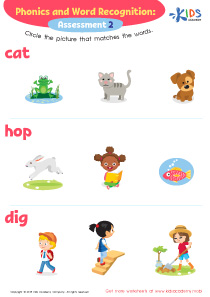Extra Challenge Consonants Worksheets for Ages 3-8
5 filtered results
-
From - To
Discover the ultimate Extra Challenge Consonants Worksheets for children ages 3-8. Specifically designed to enhance early literacy skills, these fun and engaging worksheets help young learners master tricky consonant sounds. Through a variety of activities, kids will practice recognizing, tracing, and pronouncing challenging consonants, strengthening their phonics foundation. Perfect for both parents and educators, our printables make learning an enjoyable adventure while building essential reading skills. Explore the collection to give your child an extra boost in their language development journey. Free samples available! Foster confidence and competence in young readers with our effective resources.
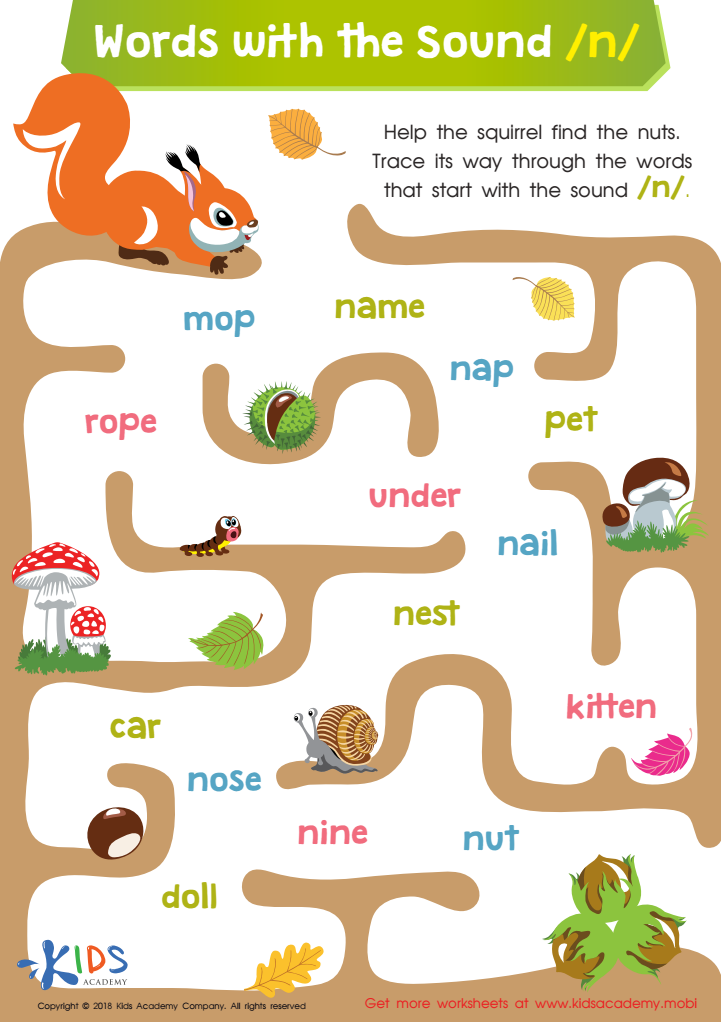

Words with Sound N Reading Worksheet
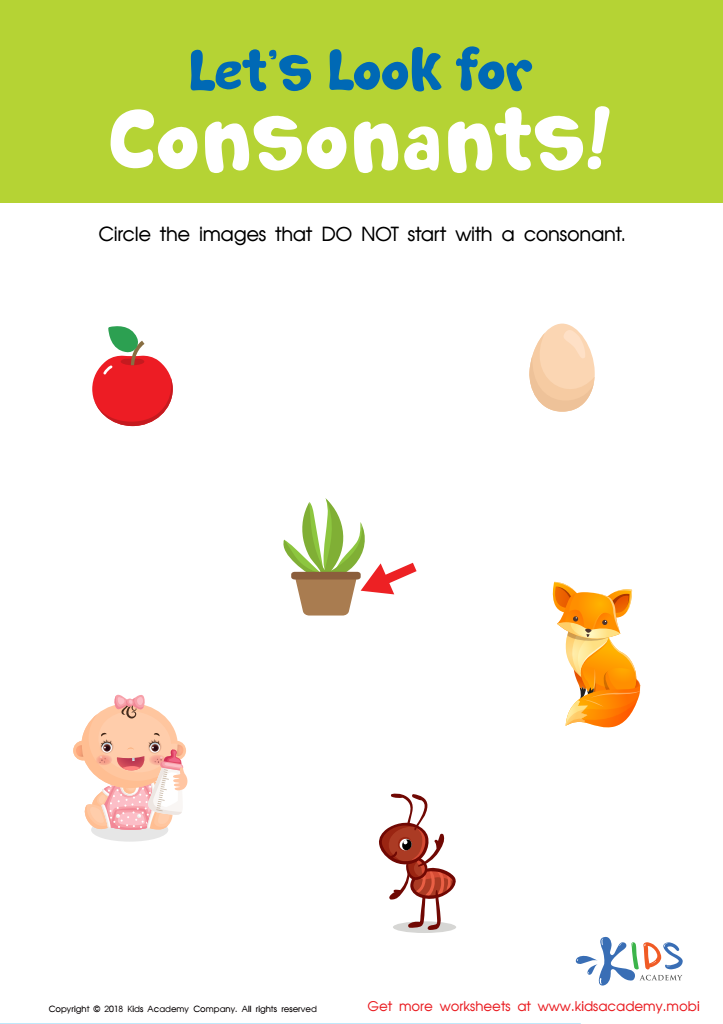

Let's Look for Consonants Worksheet
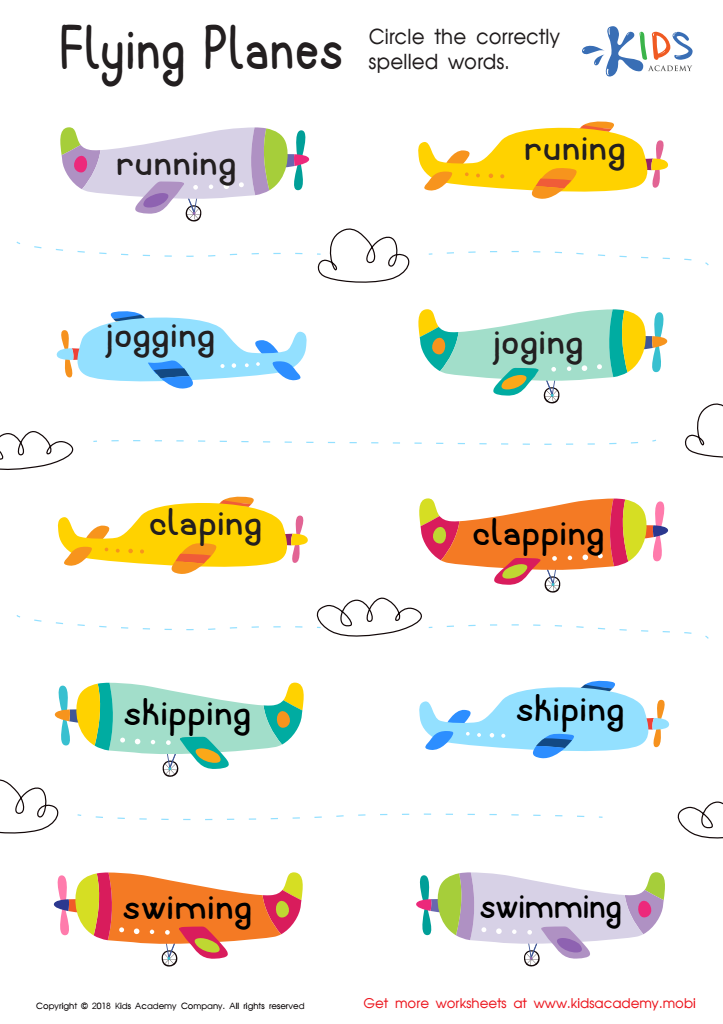

Flying Planes Worksheet
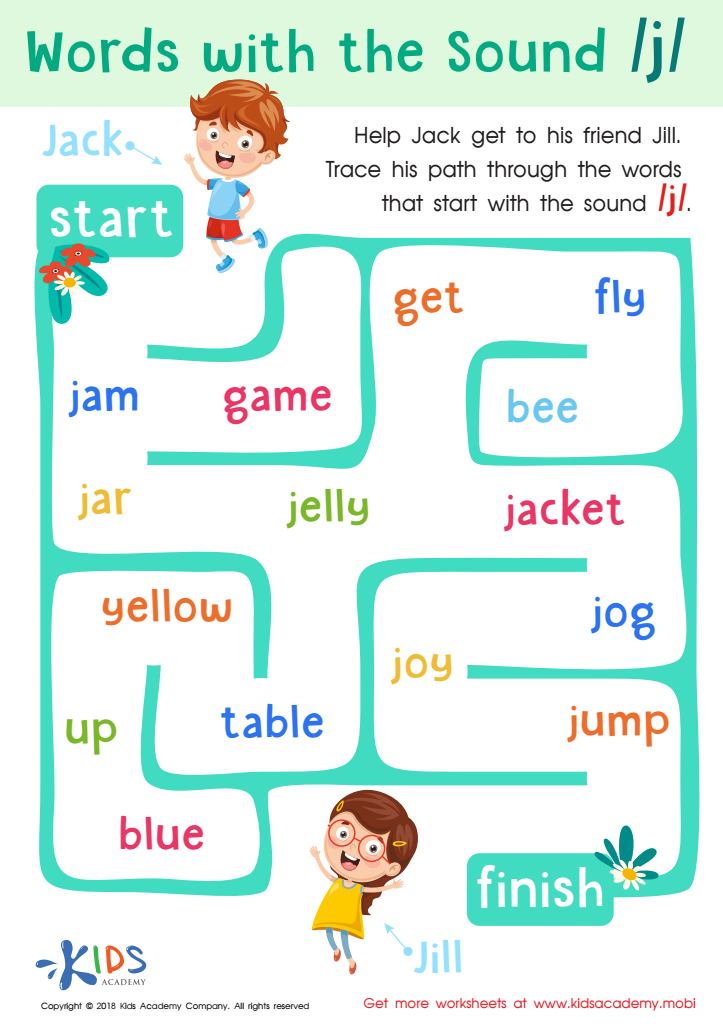

Words with sound j Reading Worksheet
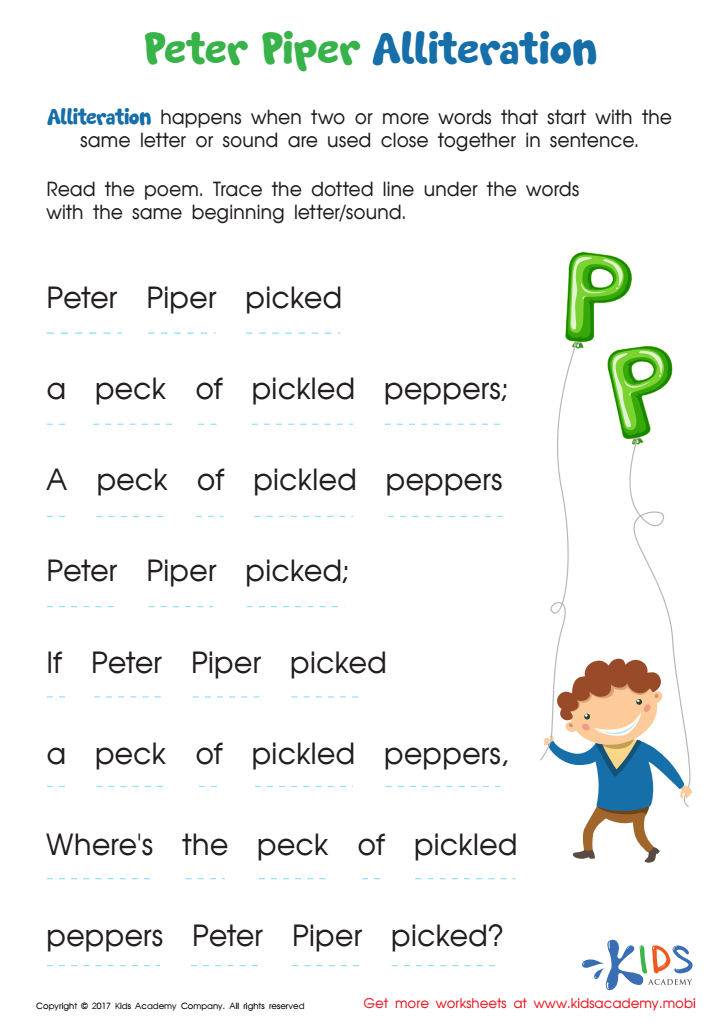

Peter Piper Alliteration Worksheet
Extra Challenge Consonants are crucial for children ages 3-8 because they lay the foundation for advanced reading and writing skills. During early childhood, cognitive development and language acquisition are at their peak. By introducing complex consonant blends and digraphs, parents and teachers can significantly enhance phonemic awareness—the ability to hear, identify, and manipulate individual sounds in words. This skill is indispensable for decoding new words, improving spelling, and enriching vocabulary.
Engaging with Extra Challenge Consonants fosters a more robust understanding of language mechanics. For instance, grasping tricky consonant combinations like “ch,” “sh,” or “th” early on supports better pronunciation and fluency in reading. This early proficiency can lead to improved comprehension skills, as children are less likely to be impeded by unfamiliar words and more capable of focusing on content.
Moreover, tackling these advanced sounds nurtures a sense of accomplishment and boosts self-confidence among young learners. When children successfully master challenging tasks, they feel more motivated and engaged, reflective of a positive learning attitude. Additionally, such foundational skills support future academic success, making extra consonant challenges a critical element in early childhood education. Overall, investing time in these areas benefits children’s literacy journey, setting the stage for lifelong learning.

 Assign to the classroom
Assign to the classroom

